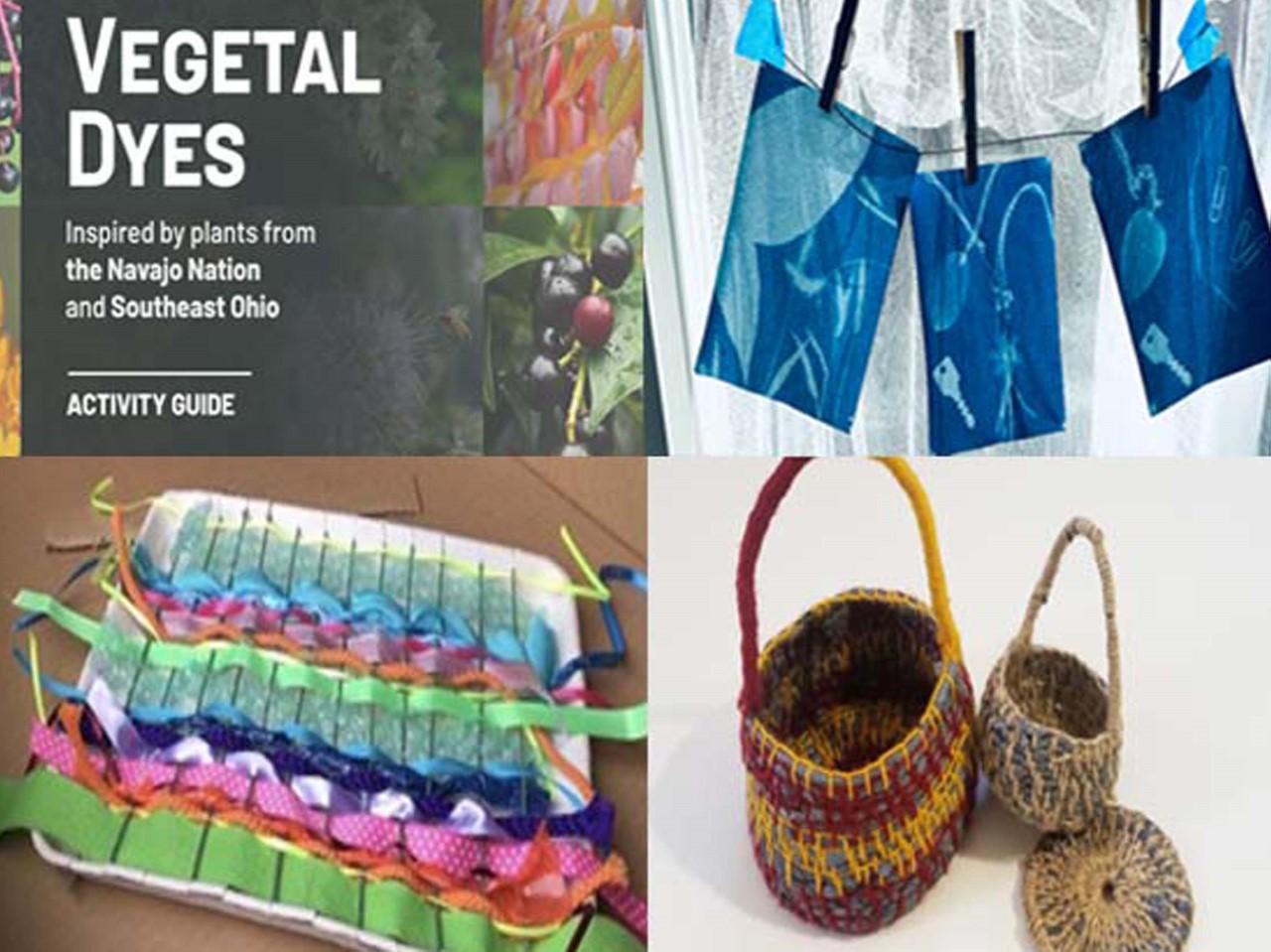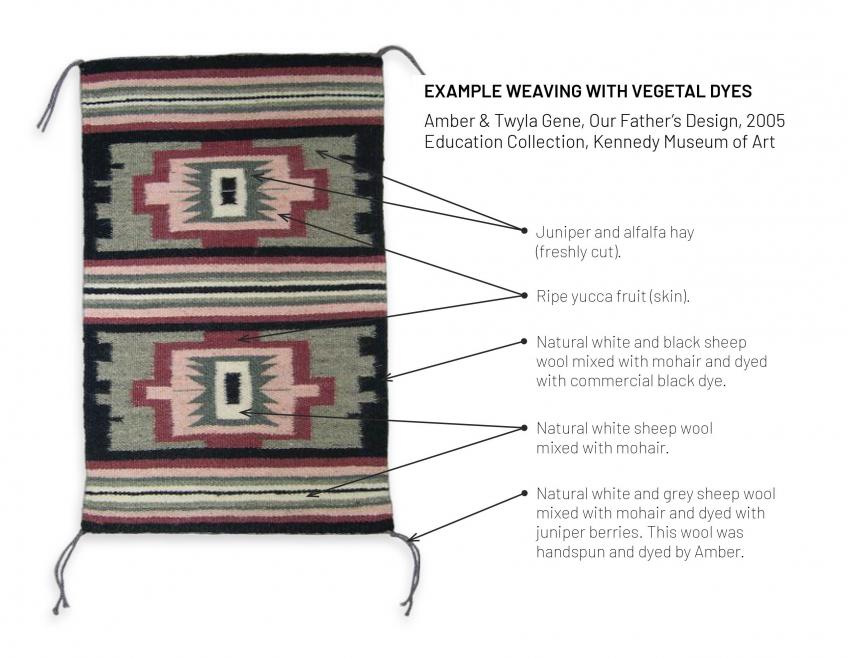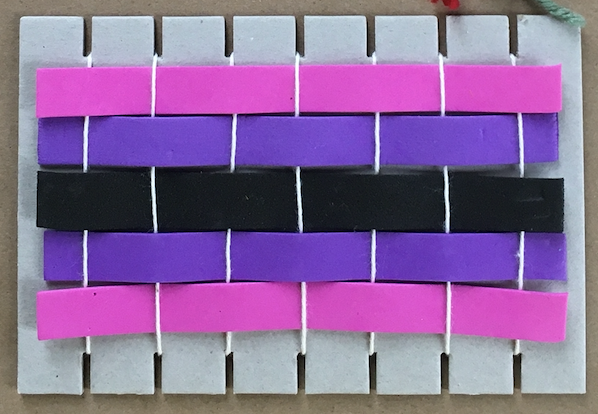
Sunday Family Art Encounters

Sunday Family Art Encounters is a drop‐in program for children and adults to engage in shared creative activities. Art making projects are inspired by a featured artwork on display in the galleries, and are open‐ended to accommodate a variety of ages. All families are welcome!
Activities are FREE and open to all ages accompanied by an adult. Registration is not required.
Studio activity directions also provided in Spanish and Arabic.
Instrucciones disponibles en español para la actividad en el estudio.
.سيتم توفير كافة التعليمات للنشاط في الاستوديو باللغة العربية
MAY ART ENCOUNTERS:
Take a Walking Sculpture Tour at The Ridges

If you’ve been looking for an outdoor activity that will get you moving, take this sculpture tour at The Ridges and try out some of the outdoor and at-home activities!
Click here for the tour.
April ART ENCOUNTERS AT-HOME!
Following guidance from OHIO University and directions from city, state, and federal officials, the Kennedy Museum of Art is temporarily closed and weekly/monthly programming has been suspended until further notice.
Dyeing wool or yarn using household items
For this Art Encounters, we will show you how to dye your own wool or yarn with common household items.
Parents: please note that these dyeing projects involve using boiling water.

Using white acrylic, cotton, or wool yarn, you can combine your dyes to create colors for your own weavings. If you don’t have these yarns around the house, you can buy them on Amazon here, and white acrylic and cotton yarn can be purchased from Walmart here.
GENERAL DYEING TIPS:
- Wear gloves to keep the dyes from staining your skin.
- If you are using wool, do not add to boiling mixtures. Let mixtures cool first and then soak your wool (you may have to soak it for longer). Cotton and acrylic yarn is fine in hot mixtures.
- Before placing yarn in the dye, make sure you unwind it and tie at the top (creating a loop or O shape) so all of it is exposed but doesn’t completely unravel.
- To remove dye fragrances, rinse wool/yarn in laundry detergent & cold water after it has dried.
ITEMS & COLORS:

|

|

|
|
BEETS: Instructions: Chop up 3 – 4 beets and cover with water in a pot. Bring to a boil, and simmer for an hour, or until you get the color you’d like. Remove the beet chunks from the pot, and add yarn. Continue to simmer for 45 minutes. Turn off heat and allow yarn to soak for a few hours or as long as it takes to get the deepness of color you want. |
RED ONION SKINS: Instructions: *Note: Yellow onion skins will create a tan or light brown color with the same process!* Place onion skins in a pot & cover generously with water. Bring to a boil, then simmer for ~30-40 minutes. Once the dye looks right to you in the pot, strain out the skins. Place your yarn in the mixture and let soak for as long as you please. Rinse afterwards and let dry. |
COFFEE: Instructions: Boil coffee grounds in a pot of water and let sit until it reaches a very dark brown, as if you are making a very strong batch of coffee. When you feel like it’s done, filter out the coffee grounds using a French press, cheesecloth, etc. Pour into a large bowl, add your yarn and let sit for a couple of hours or overnight. Watch a step-by-step video here. |

|

|

|
|
RED CABBAGE: Instructions: Follow instructions for red onion skin but with red cabbage to create a purple color. To create a blue color, follow the same steps but add baking soda to the final dye.
|
BLACK TEA: Instructions: Make a big batch of black tea in a pot of boiling water, let your yarn or wool soak overnight and dry out the next day.
|
GROUND TURMERIC: Instructions: Combine 1 ounce of turmeric with 3 quarts of water in a pot and bring to a boil (use more tumeric for a deeper/ brighter color). After unwinding and tying yarn at the top, place it in the boiling mixture for 30 min. Use tongs to take out your yarn and rinse with cold water. |
Sources
- Onion skins: http://www.allnaturaldyeing.com/onion-skin-dye/
- Turmeric: http://www.lionbrand.com/blog/food-safe-dyeing-turmeric/
- Red cabbage, beets, other materials: https://www.youtube.com/watch?v=fImpanUPjS8(
- Beets: https://www.hgtv.com/design/make-and-celebrate/handmade/the-beet-goes-on
- Black tea and Coffee: https://knitsewhappy.wordpress.com/2015/09/05/tutorial-how-to-dye-yarn-with-coffee-and-tea/
March ART ENCOUNTERS AT-HOME!

Our March Art Encounters studio activity can be done at home! Based on the museum’s rich collection of Navajo weavings, this activity engages a process of creating you might not have tried before: weaving. A practice shared by many cultures, this month’s project engages the basics of the process on a small scale with cardboard looms you can make yourself or order online.
Here are a few video links to get you started.
The basics of small cardboard loom weaving:
https://www.metmuseum.org/metmedia/video/metkids/metkids-create/weave-on-a-mini-loom
https://www.youtube.com/watch?v=LbtKnvc_9No
How to make your own cardboard loom (you can adapt the size):
https://www.youtube.com/watch?v=mw_tZLCLeEY
These are the cardboard looms we use at the museum:
https://www.dickblick.com/products/wide-notch-cardboard-looms/
We also found nice warping yarn on the Blick site and found short plastic blunt needles on Amazon. Some people also adapt a paper clip as a “needle.”
For a weaving project with younger children you can use strips of ribbon or paper (these strips were made from sheets of foam paper):

Have fun and email us pictures of your creations so we can post them on our website! delgado@ohio.edu
Also, contact us if you have questions or would like to share additional resources related to this project: delgado@ohio.edu